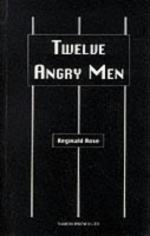
|
| Name: _________________________ | Period: ___________________ |
This quiz consists of 5 multiple choice and 5 short answer questions through Act II.
Multiple Choice Questions
1. As the jurors analyze the evidence and arguments more closely, it becomes evident that the dissenting voter is playing a critical role as an agent of change. Which of the following words best describes this role?
(a) Rebel.
(b) Catalyst.
(c) Revolutionary.
(d) Radical.
2. What is the state of mind of most of jurors as they enter the jury room?
(a) Tired, but committed to spending whatever time it takes to analyze the evidence.
(b) Tired, uncomfortable and eager to return with a guilty verdict.
(c) Willing to do whatever is necessary to reach the right verdict.
(d) Eager to return a just verdict even though they are uncomfortable.
3. What does the verdict from the second vote among jurors prove?
(a) That the foreman does a good job of managing the ballot.
(b) That the dissenting juror is right in his "not guilty" verdict.
(c) That the evidence is clearer after the discussion.
(d) That the arguments presented by the dissenting juror had some effect.
4. What two reasons cause a juror to believe there is reasonable doubt about the defendant's guilt after adding doubts about the old man's testimony to earlier discussions about the murder?
(a) The fact that the old man was hearing impaired and wore glasses.
(b) The arguments of Juror Eight and Juror Nine.
(c) The realization that the woman wears glasses and she saw the murder through the train.
(d) The fact that a similar weapon was easily available and that the old man might have been lying.
5. Which two jurors are moved by the discovery that the old man would have taken longer than he said to move from his bed to the door after hearing the noise upstairs?
(a) Jurors Two and Six.
(b) Jurors Ten and Twelve.
(c) The foreman and Juror Four.
(d) The foreman and Juror Six.
Short Answer Questions
1. In what process does the defendant ask questions of the prosecution's witnesses?
2. According to the old man witness, where was he when he heard the argument between the defendant and his father?
3. According to the juror who used to live by the el train, how long would the train take to pass a particular point?
4. What does Juror Eight explain to the juror who asks who killed the man if it was not the defendant?
5. In the beginning of the deliberations, how do most of the jurors demonstrate a lack of seriousness about their role as jurors?
|
This section contains 492 words (approx. 2 pages at 300 words per page) |

|




